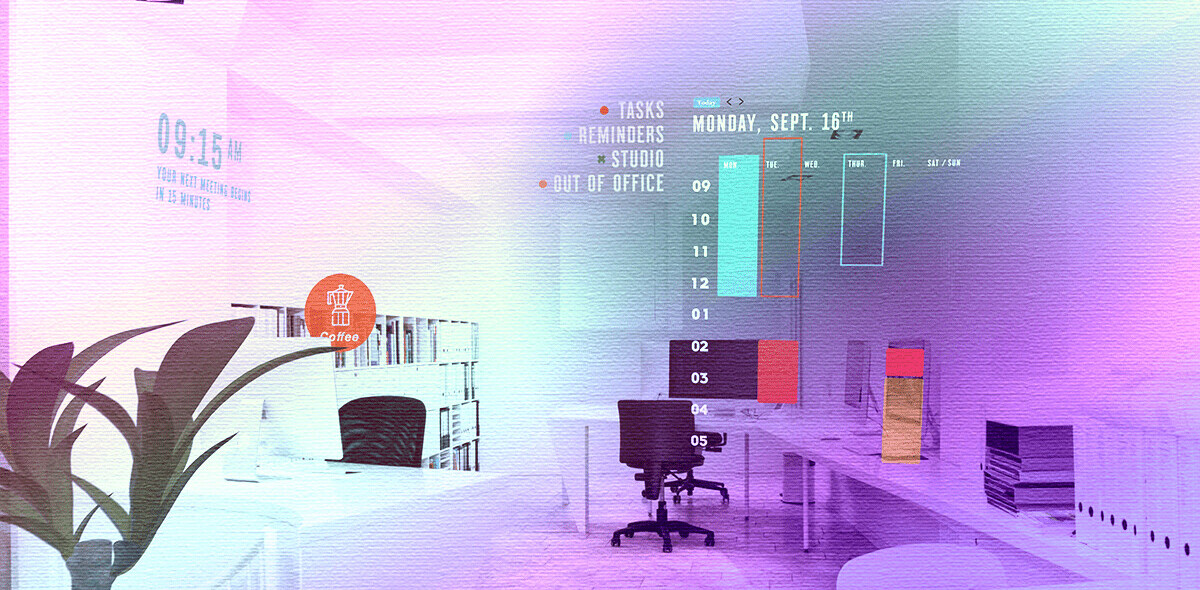
‘Solopreneurship’ has seen quite an evolution in recent years. Platforms like Upwork and Freelancer.com have made it incredibly easy to find projects of shapes and sizes. The expansion of the freelance economy has led more and more people to give themselves the title of ‘self-employed.’
“The gig economy is now estimated to be about 34% of the workforce and is expected to be 43% by the year 2020,” says Intuit CEO Brad Smith.
The prospect of working whenever and wherever you please without a manager breathing down your neck is one of the most desirable characteristics in a job. However, for as green as the pastures of solopreneurship may seem, this career does not come without a big set of challenges.
Given the rising popularity of the gig economy, getting your name out there and proving your services stand above the pack of freelancers and big businesses is no simple task – but it’s not impossible.
Here are four ways solopreneurs can compete on the same playing field with the big boys.
Be fast and flexible
Speed is everything in business. Due to how saturated the gig economy is, the work life of a solopreneur is hardly confined to the 9 to 5 schedule. There is no telling when clients will post a project, ask a question, or need a job done fast. The ability to be first to the punch and quick with communication is a key characteristic for ongoing success. Not only does this bring in business, it does a lot of build trust and rapport.
This is where you have a serious advantage on big businesses. In many cases, the more established agencies will not respond to inquiries outside of business hours. Therefore, creating a reputation for quickness and flexibility can be a defining feature that sets you apart from everyone else.
This goes beyond completing projects with lightning-fast turnarounds. Make it a point to reply to emails and messages as soon as you get them, schedule meetings for as soon as possible, and be quick to follow up. Even more, make it clear to clients from the get-go that you have a solid system in place. As many will attest, email is not always the best means of communication. As your client base grows, providing swift responses and flexibility will be a challenge. Many businesses and freelancers use mobile-friendly “project management” and collaboration tools such as Zoho to keep all jobs and tasks organized.

Speed and flexibility should be defining factors of your services. Successful solopreneurs are responding to messages in the evenings, on the weekends, and doing everything they can to accommodate new and existing clients. If you can’t do this, someone else will!
Have a defined visual identity
Regardless of your niche, chances are, there are thousands of other solopreneurs and businesses offering the same services and sending proposals for the same projects. The absolute worst adjective you can be described as is generic. One of your most important tasks as a solopreneur is to differentiate yourself.
That being said, you need to build a brand identity that not only captures attention but gives new and existing clients a sense of security.
Most big businesses put a lot of time and effort into building a brand that people recognize instantly. When people see the logo, colors, and stationery of H&R Block, there is an automatic sense of comfort in knowing their tax needs will be taken care of.
While it definitely takes time to build up a good reputation as a solopreneur, establishing a visual identity should be your first order of business. This involves all branded content that comes in contact with clients. Fortunately, you don’t need a huge budget and first-rate designers to accomplish this. There are online platforms (not to be confused with task-marketplaces like Upwork) like WiseBrand that are focused on helping freelancers, solopreneurs and very small startups build a business identity with branding bare bones like customizable websites, email signatures, business cards and document designs.

You can then use the system to build on this visual identity and create an online presence for yourself through content marketing, SEO, and business analytics.
First impressions matter, a lot. Investing in a strong, polished visual identity is one of the best investments a solopreneur can make.
Zero in on your niche market
One of the biggest advantages large companies hold over solopreneurs is they typically can appeal to general markets. For example, a large creative agency has the manpower to do work for a wide range of clients while offering a stellar customer experience. For as versatile as you might be, you can only spread your skills so far.
It is much better to focus on providing exceptional service in fewer areas than providing mediocre service in many areas. Let’s say you’re a content writer. While you may pride yourself on being able to switch gears and write for multiple industries, it’s best to stick to the ones you are well-versed in. If you know nothing about medical supplies and a potential client needs a quick turnaround, producing top quality work is going to be difficult.
Emphasizing your contribution to a niche market has a lot of benefits for a solopreneur. You don’t have to spend as much on advertising across vast markets, you can create more customized experiences for clients, and the competition will likely not be as fierce. That said, you shouldn’t ignore what your competitors are doing, as even a single one can beat you out of the market. You can turn to competitive intelligence software like WhatRunsWhere which yields remarkable insights into the niche marketing strategies your competition is using and the ones that are working for them.

Make it easy for the customer
Unless you’ve been living under a rock for the past decade, it should be common knowledge that your company website needs to be actionable. Regardless of what you’re selling, a complex buying process is one of the easiest ways to turn potential customers away. Generally speaking, online commerce is an impulsive entity.
This is why one-click purchasing is so effective. When you launch your website, simplicity needs to be a fundamental trait. Each hoop people have to jump through in the buying process is another opportunity to reconsider.
Keep in mind – every piece of branded content you create should work as a vector with the end goal of bringing in revenue. In essence, one of your primary goals as a solopreneur – or any business for that matter – should be to expand your offerings as far as you possibly can.
Which is why you need to make sure there are plenty of options for people to convert at every turn. In ecommerce, that translates to multiple digital channels, linked to your point of sale. For example, ecommerce platform BigCommerce lets you embed buy buttons for your bestselling products into your blogs, emails, social media posts, or any digital property that has the potential to make a quick sale.

This can lead directly to a product page, shopping cart or checkout for shopper convenience. “Convenience” is one of the biggest factors in business today, especially for millennials. Always check to see if these three adjectives describe your buying process: quick, easy, and pervasive.
Over to you
The David and Goliath story is a way of life for most solopreneurs. Only there’s millions of other Davids and thousands of Goliaths. As time goes on, this reality is only going to be more intense.
Being successful in this regard is by no means easy. As long as you commit to a unique identity, superior client relations, and tackling jobs you’re most qualified for, you will put yourself on a good road to success.
Get the TNW newsletter
Get the most important tech news in your inbox each week.





